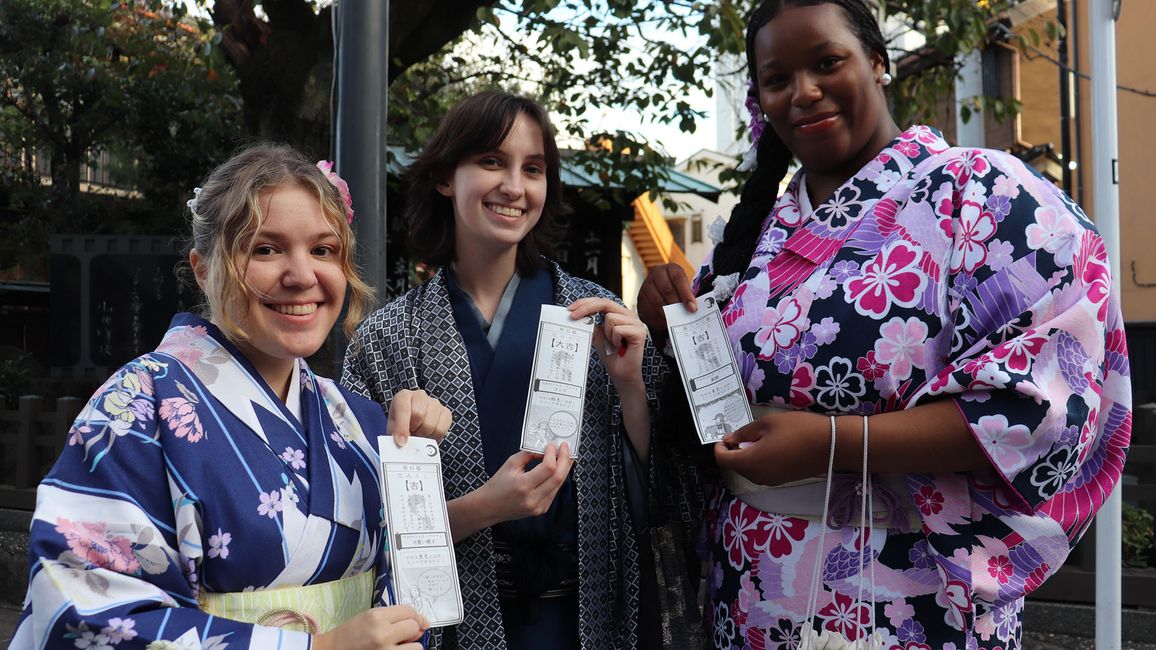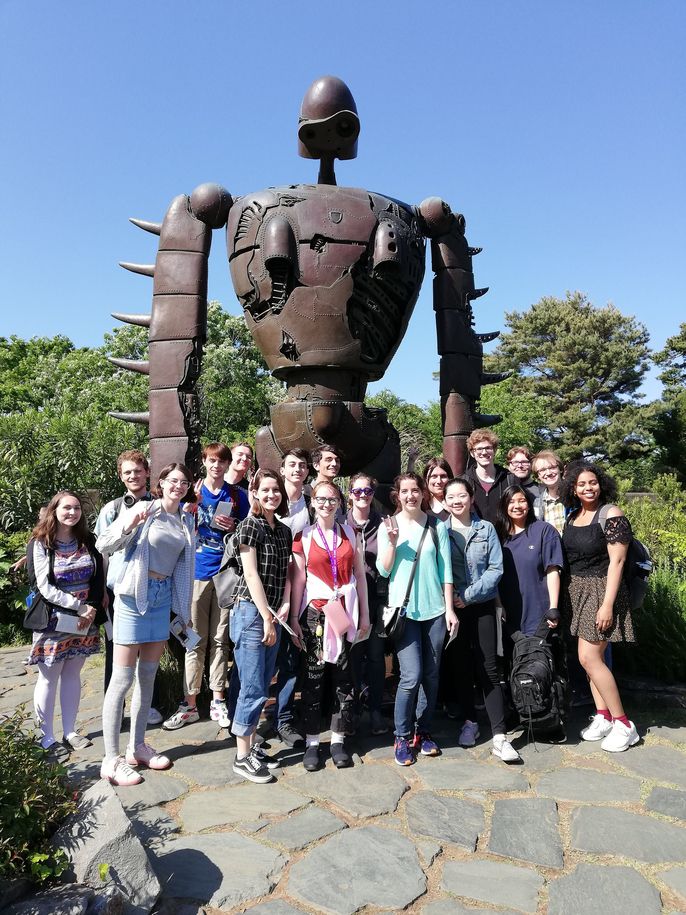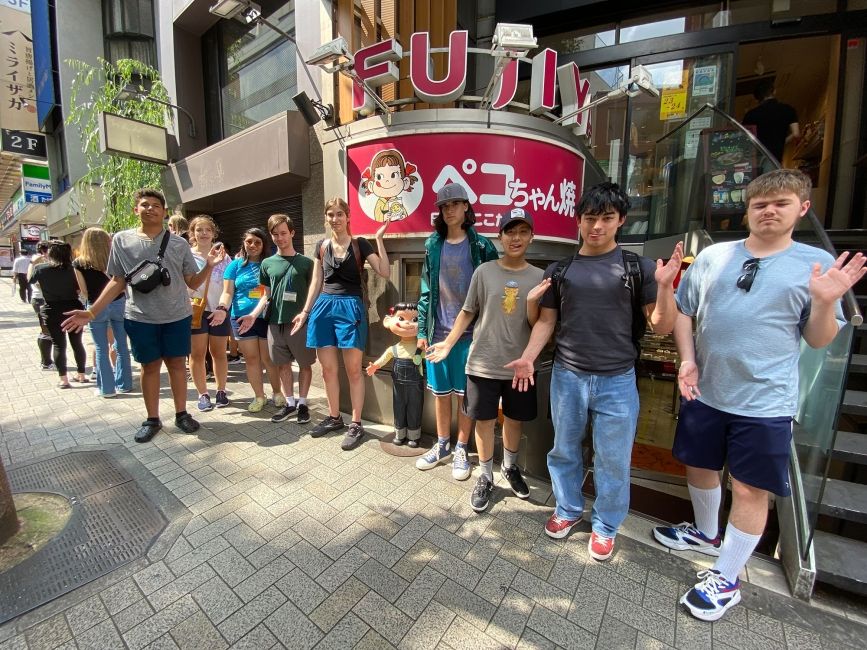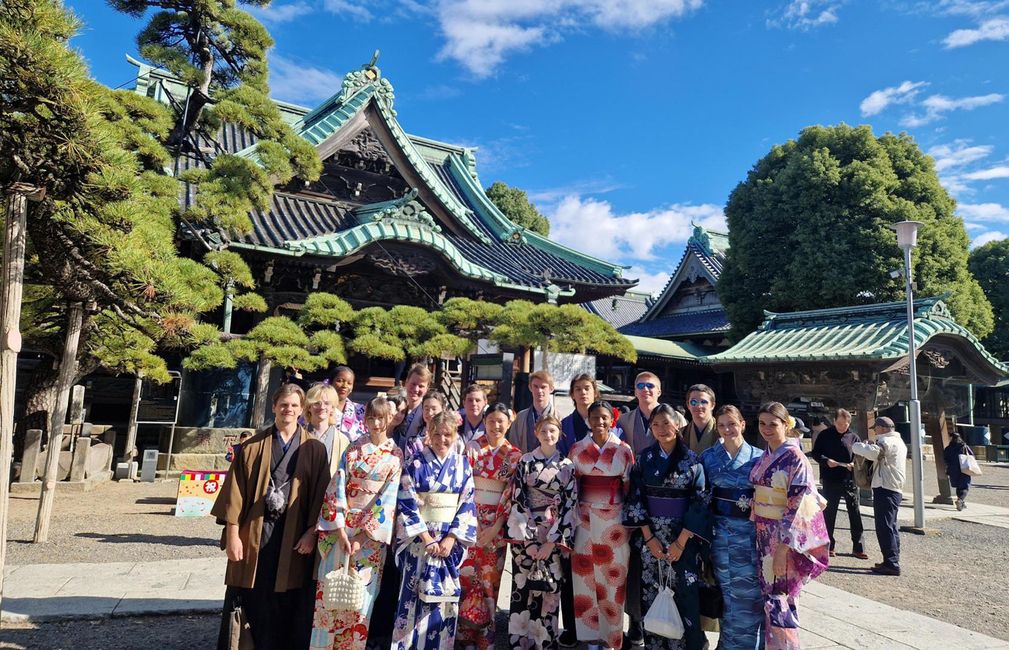EAT, DRINK, EXPLORE: TOKYO
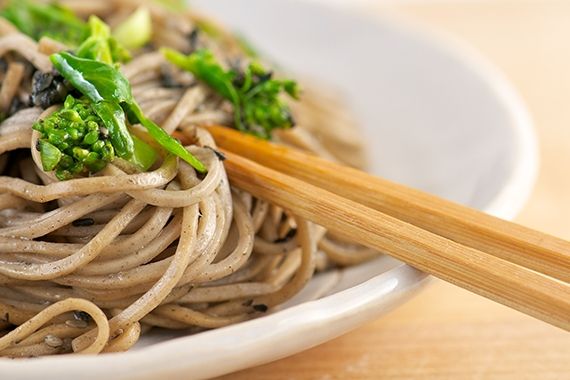
BEST FOOD TO EAT IN TOKYO
Since the 17th century, soba (buckwheat) noodles have been a staple in the Japanese diet. These tasty noodles are as thick as spaghetti and are eaten either in a hot broth; or chilled with a dipping sauce. Throughout Tokyo, you’ll find soba noodles in a variety of settings - from fast food shops to expensive specialty restaurants. The most traditional soba dish is mori soba, which features chilled soba noodles with chopped green onion, wasabi, and tsuyu (a dipping sauce mixture of soy sauce, soup stock, and a rice wine called “mirin”). Eat soba like a local – use your chopsticks and slurp the noodles noisily to enhance the flavors!
Top Cultural Foods To Try in Tokyo
Here are some of the top traditional foods to try while you're studying in Tokyo:
- Edomae-style sushi: You have to try sushi in the city where it was created! Edomae-style sushi, which originated in old Tokyo, includes perfectly sliced fresh fish served over vinegared rice. Trying it at a small, authentic sushi bar is the best way to try it!
- Monjayaki: Monjayaki is a local specialty that is a savory, pancake-like dish with a runny batter. You cook it yourself on a hot plate at your table, but we recommend trying it with friends since it makes for a great social outing!
- Yanagawa nabe hot pot: If you love hot pot, you’ll definitely enjoy this classic hot pot dish. Yanagawa nabe is a traditional Tokyo meal featuring loach fish, egg, and burdock root. This savory stew has been enjoyed since the Edo period, but it is still widely loved and enjoyed today!
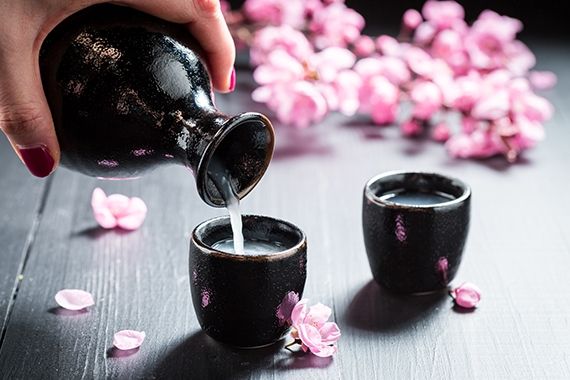
BEST DRINK IN TOKYO
Developed in the 3rd century, sake (Japanese rice wine) is Japan’s national drink and an important part of the country’s culture. Sake has evolved over time, but in its most basic form it’s produced by fermenting rice, water, koji mold, and yeast, then filtered to render a clear (sometimes yellowish) liquid. The flavor profile of sake is relatively mild, but can be crisp, rich, and fruity as well. Today, there are roughly 10,000 different varieties made by 1,800 Japanese sake brewers. The Japanese drink sake to commemorate important events such as holidays, births, deaths, and other formal ceremonies, and they also pair it with most meals. Enjoy a cup of sake hot in the winter or cold year-round.
Top Cultural Drinks To Try in Tokyo
Here are some of the top traditional drinks to try while you're studying in Tokyo:
- Matcha: In Japan, matcha is a central part of Japanese culture. If you haven’t tried it before, matcha is a finely ground green tea powder with a vibrant green color and a bittersweet flavor. You can try it in a traditional tea ceremony or in the form of a latte in one of Tokyo’s many cafes. Plus, it’s popular among Japanese students!
- Sake (Nihonshu): Sake is a traditional Japanese rice wine that is a staple of meals and celebrations. It can be served hot or cold, and you will find that Tokyo has countless sake bars and restaurants where you can try a wide variety of flavors and find your favorite.
- Japanese Whiskey: Tokyo has a fantastic modern bar scene, and Japanese whiskey has gained global fame for its smooth and complex flavor. Trying a glass of this world-class spirit in a stylish Tokyo bar is the best way to try it.

BEST PLACE TO EXPLORE IN TOKYO
Did you know, Japan is the only country where you can see professional sumo wrestling? Considered a Japanese martial art (gendai budō), sumo wrestling is a competitive full-contact sport where a rikishi (wrestler) tries to force their opponent out of a dohyō (circular ring) or attempts to throw, push, or shove their opponent to the ground. At Tokyo’s indoor sporting arena, Ryōgoku Sumo Hall, you can join some 10,000 sumo fans to watch the country’s national sumo tournaments each year. The arena also offers museum tours where you can learn about this ancient form of wrestling.
Top Cultural Attractions to Visit in Tokyo
Here are some of the top cultural attractions to visit while you're studying in Tokyo:
- Senso-ji Temple: Discover Tokyo's oldest and most famous Buddhist temple! The temple has a massive red gate and is located in the charming Asakusa neighborhood. Plus, walking through the Nakamise-dori shopping street to get to the temple is a great opportunity to pick up gifts or mementos from your time abroad.
- Shibuya Crossing: This is the world’s most famous pedestrian intersection, and it is very popular on social media. Watching thousands of people cross all at once is fascinating enough, but standing in the middle to snap a quick picture is also a popular trend you can partake in.
- Hamarikyu Gardens: If you want to escape from the excitement of the city, you’ll want to visit these famous gardens. This beautiful traditional Japanese garden is located right next to Tokyo Bay, and it perfectly shows off how the city blends nature and urban architecture. Having a cup of matcha at the teahouse in the middle of the pond is a great way to enjoy the gardens to the fullest!
Related Posts

Top 10 Japanese Slang Words & Phrases You Must Know
Textbook Japanese is great and all, but if you really want to impress the locals, you need to know Japanese slang terms. These aren’t the phrases you’ll learn in class... keep reading

The 13 Best Gifts for a Study Abroad Student in 2024
Are you looking for the best gifts to give someone traveling abroad? Perhaps you need to find some study abroad gifts for a student planning to study overseas. You've come... keep reading
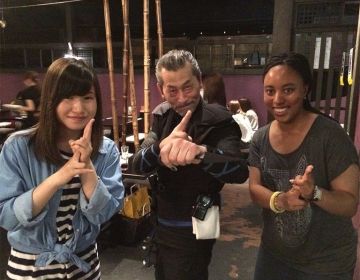
5 Reflections from Studying Abroad in Tokyo
Study abroad will change your life! We asked alumni to reflect on their time abroad and share a few tips to help future students prepare for the journey ahead. Check... keep reading

